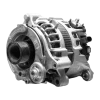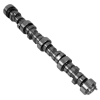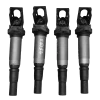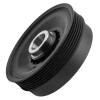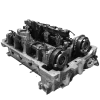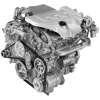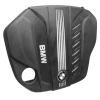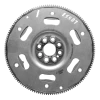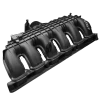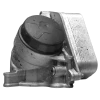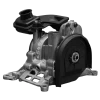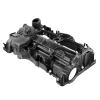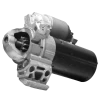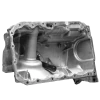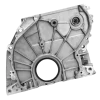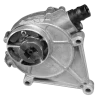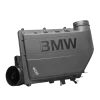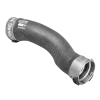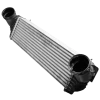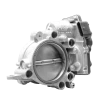
Available stock
-
 TURBO/SUPERCHARGER F26 (942) (943) *11-50* Pair31,653 kmAU $1800.00
TURBO/SUPERCHARGER F26 (942) (943) *11-50* Pair31,653 kmAU $1800.00 -
 TURBO/SUPERCHARGER E70 (363) *11-50* D6 Lg 40d105,165 kmAU $800.00
TURBO/SUPERCHARGER E70 (363) *11-50* D6 Lg 40d105,165 kmAU $800.00 -
 TURBO/SUPERCHARGER E70 (361) *11-50* D6 Sm 40d105,165 kmAU $1000.00
TURBO/SUPERCHARGER E70 (361) *11-50* D6 Sm 40d105,165 kmAU $1000.00 -
 TURBO/SUPERCHARGER F F22 (913) *11-50*46,050 kmAU $800.00
TURBO/SUPERCHARGER F F22 (913) *11-50*46,050 kmAU $800.00 -
 TURBO/SUPERCHARGER F12 (943) *11-50* D6 Upper Small150,000 kmAU $900.00
TURBO/SUPERCHARGER F12 (943) *11-50* D6 Upper Small150,000 kmAU $900.00 -
 TURBO/SUPERCHARGER F12 (942) *11-50* D6 Lower Big150,000 kmAU $900.00
TURBO/SUPERCHARGER F12 (942) *11-50* D6 Lower Big150,000 kmAU $900.00 -
 TURBO/SUPERCHARGER F25 (469) *11-50* P483,155 kmAU $500.00
TURBO/SUPERCHARGER F25 (469) *11-50* P483,155 kmAU $500.00 -
 TURBO/SUPERCHARGER E70 (759) *11-50* D6 N57152,488 kmAU $500.00
TURBO/SUPERCHARGER E70 (759) *11-50* D6 N57152,488 kmAU $500.00 -
 TURBO/SUPERCHARGER F15 (270) *11-50* D660,000 kmAU $500.00
TURBO/SUPERCHARGER F15 (270) *11-50* D660,000 kmAU $500.00 -
 TURBO/SUPERCHARGER F20 (469) *11-50*48,896 kmAU $500.00
TURBO/SUPERCHARGER F20 (469) *11-50*48,896 kmAU $500.00 -
 TURBO/SUPERCHARGER F20 (469) *11-50*15,000 kmAU $500.00
TURBO/SUPERCHARGER F20 (469) *11-50*15,000 kmAU $500.00 -
 TURBO/SUPERCHARGER F20 (424) *11-50* P688,646 kmAU $1500.00
TURBO/SUPERCHARGER F20 (424) *11-50* P688,646 kmAU $1500.00 -
 TURBO/SUPERCHARGER F30 (469) *11-50* P447,656 kmAU $500.00
TURBO/SUPERCHARGER F30 (469) *11-50* P447,656 kmAU $500.00 -
 TURBO/SUPERCHARGER F15 (469) *11-50* 40e74,810 kmAU $500.00
TURBO/SUPERCHARGER F15 (469) *11-50* 40e74,810 kmAU $500.00 -
 TURBO/SUPERCHARGER F F22 (469) *11-50*53,397 kmAU $500.00
TURBO/SUPERCHARGER F F22 (469) *11-50*53,397 kmAU $500.00 -
 TURBO/SUPERCHARGER F30 (476) *11-50* D4112,008 kmAU $500.00
TURBO/SUPERCHARGER F30 (476) *11-50* D4112,008 kmAU $500.00 -
 TURBO/SUPERCHARGER F30 (476) *11-50* D462,791 kmAU $500.00
TURBO/SUPERCHARGER F30 (476) *11-50* D462,791 kmAU $500.00 -
 TURBO/SUPERCHARGER F30 (759) *11-50* P439,845 kmAU $1500.00
TURBO/SUPERCHARGER F30 (759) *11-50* P439,845 kmAU $1500.00 -
 TURBO/SUPERCHARGER E70 (363) *11-50* D6 Lg 40d190,452 kmAU $800.00
TURBO/SUPERCHARGER E70 (363) *11-50* D6 Lg 40d190,452 kmAU $800.00 -
 TURBO/SUPERCHARGER E70 (361) *11-50* D6 Sm 40d190,452 kmAU $1000.00
TURBO/SUPERCHARGER E70 (361) *11-50* D6 Sm 40d190,452 kmAU $1000.00
Helpful Information
This guide aims to provide 'general' information about BMW transmissions, such as common issues that we've encountered and tips on determining fitment compatibility.
Turbochargers are a problem in all turbocharged BMWs—but the common problems can be avoided with good servicing. The main issues that occur are:
- Oil starvation: Oil starvation is the biggest killer of BMW turbochargers—and is mostly caused by blocked feed lines. The lack of oil will wear out the turbine, which can then present as a whining noise, poor acceleration or blue/grey exhaust smoke. This can be avoided with regular oil changes and replacing/cleaning the turbo feed lines at recommended intervals.
- Cheap oil: Turbochargers seals can be killed by poor quality oil—so it is important to use the BMW Long-Life specified for your engine.
- Oil contaminants: Contaminants in the oil can kill the turbocharger—so ensure that your changing the oil and filter at regular intervals (for the petrol cars in our fleet we change them every 8,000 kms.)
Additionally, there are some specific design issues with certain turbochargers. For example, the N54 and N20 engines have problems with excessive wastegate rattle, and the N47T engines in the X5 F15 25d have a critical design flaw in the wastegate actuator that leads to failure. There might be fixes for these, but we’re not really involved in that part of the BMW ecosystem.
A turbocharger is a forced induction device that increases an engine’s efficiency and power output by forcing extra compressed air into the combustion chamber.
Turbochargers consists of a turbine and a compressor on a shared shaft. The turbine is powered by the engine’s exhaust gases, which rotate the compressor, drawing in and compressing air more densely than atmospheric pressure alone. This compressed air allows the engine to burn more fuel per engine cycle, significantly enhancing power and torque outputs without increasing engine displacement.
When determining fitment compatibility of a turbocharger for your vehicle—it is best to match the BMW part number from the catalogue. You can alternatively match the BMW part number or manufacturer number engraved into the unit—but these numbers have likely been superseded.
Provide us with your vehicle’s 17-digit VIN—and we’ll check our stock for a compatible match.
Turbochargers are highly-interchangeable between vehicles with the same engine.
BMW Turbochargers – Quality Performance for Your Engine
Genuine turbochargers offer reliability that aftermarket options simply can’t match, and by going for genuine second-hand turbochargers, you can achieve high quality at a fraction of the cost of new parts, which can be thousands of dollars.
Before fitting a new turbo, it’s crucial to replace or clean the turbo’s oil feed line and to use the correct oil grade. This step is essential to ensure that your new turbocharger functions efficiently and has a longer lifespan.
We rigorously test each engine for any ‘turbo whine’ or ‘waste gate rattle.’ If any issues arise, the part won’t make the cut, giving you confidence that only the best components will power your BMW.
Turbochargers may vary across BMW models, so it’s important to ensure fitment compatibility when purchasing a replacement. At BM Spares, we can match the correct turbocharger to your vehicle using its 17-digit VIN, helping you find the perfect fit whether you’re upgrading your X5 3.0 diesel turbocharger or replacing a 3 Series petrol turbocharger.
We follow the same process for matching all our premium quality used BMW parts, from turbochargers and transfer cases to fuel injectors, pumps, and even parts for your BMW’s infotainment system.
Browse our selection of BMW turbochargers online, or contact our team for expert assistance in finding the right part for your BMW.
Contact us
Can't find what you're after? Don't know what part fits your car? Contact our sales team and they'll check our stock & provide you with a quote.

